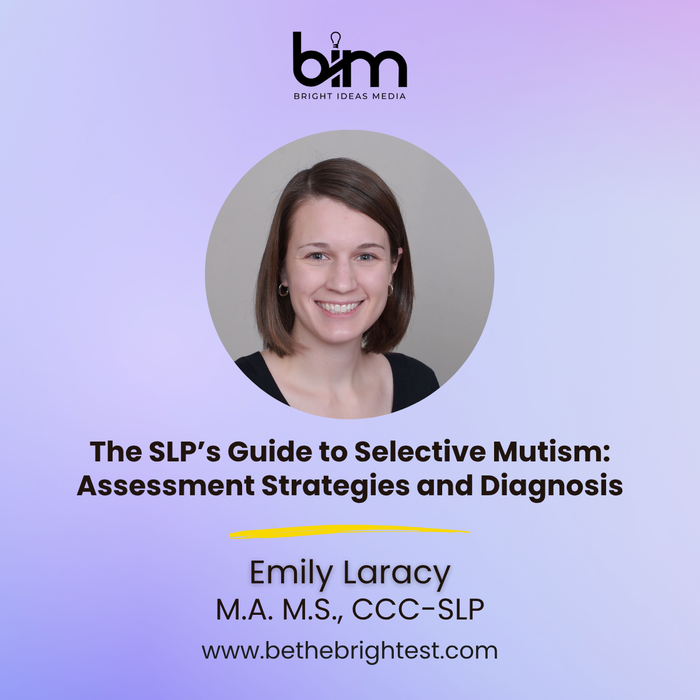Selective mutism (SM) is a complex, anxiety-based disorder that significantly impacts a child’s ability to speak in certain settings, often in school or with unfamiliar people. While SM is typically diagnosed by psychologists or psychiatrists, its effects on pragmatic language, social participation, and academic access make it a vital area of involvement for speech-language pathologists (SLPs). This webinar is designed specifically for SLPs seeking to better understand their role in identifying, assessing, and supporting students with SM in a school-based setting.
Participants will explore the defining features of SM, its prevalence, and the ways in which it interferes with communication development and classroom engagement. Emphasis will be placed on the SLP’s unique contributions to the assessment process, including how to recognize red flags, select appropriate tools, and conduct meaningful evaluations—even when verbal responses are limited. Strategies will be shared to help SLPs navigate the challenges of evaluating speech and language skills in children who are unable to speak in testing environments.
The session will also address how to interpret assessment results to develop functional, evidence-based goals and will walk participants through sample case studies. Attendees will leave with practical tools for assessing SM, a clearer sense of when to refer to other professionals, and a stronger understanding of how to contribute as part of an interdisciplinary team. Whether you’re new to SM or looking to refine your evaluation practices, this course will provide the clarity and confidence needed to support students with selective mutism effectively.
Review the other courses in this series:
The SLP’s Introduction to Selective Mutism - What Is It and What’s My Role?
The SLP’s Guide to Selective Mutism: Evidence-based Treatment Techniques
This course is offered for .1 ASHA CEUs, Intermediate Level, Professional Area
To earn ASHA CEUs you must complete the courses by viewing them, provide course feedback, pass the exams with a score of 80 or more, provide your ASHA credentials, and confirm submission.
